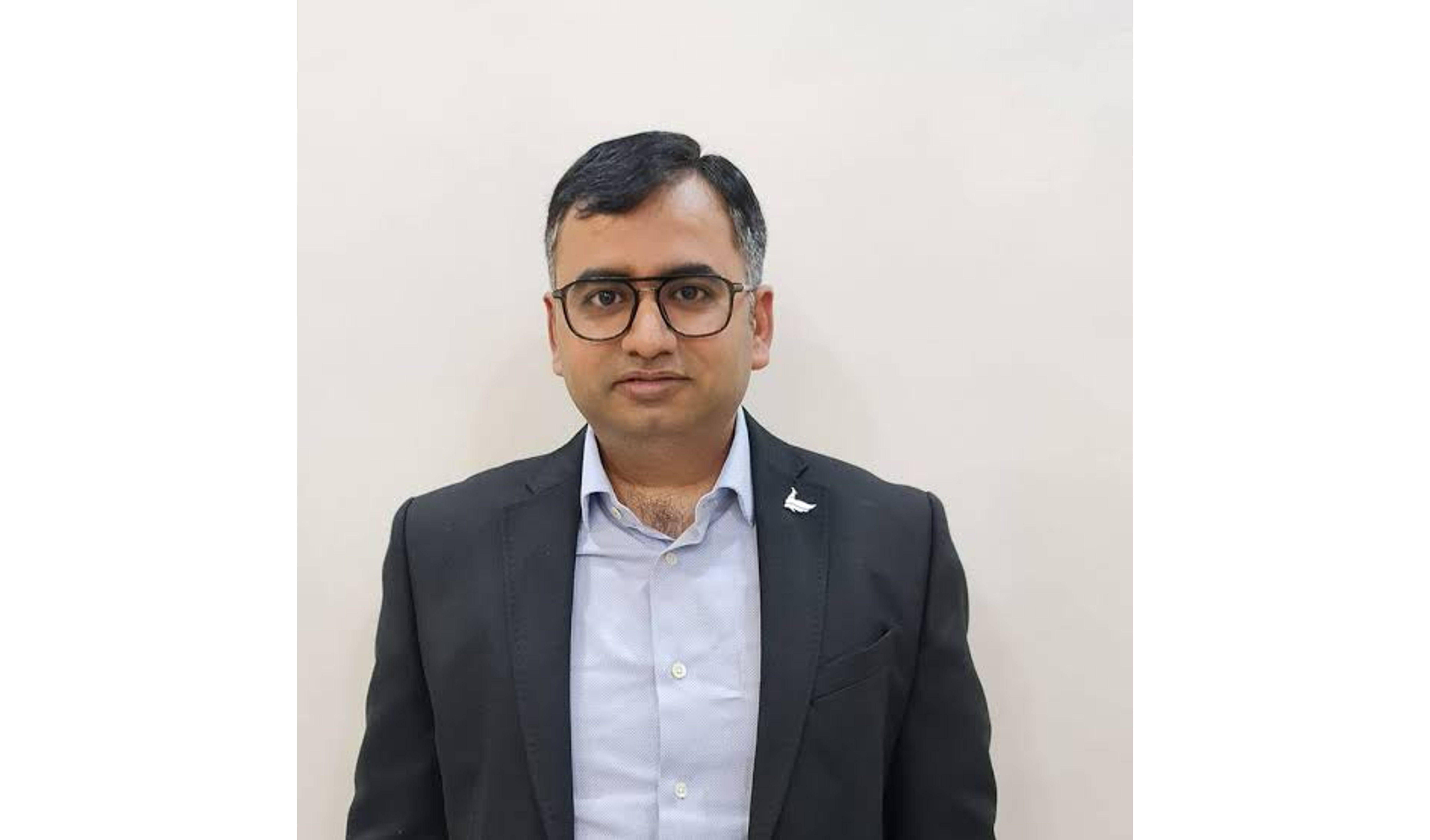Welcome User
Relevance
Consult Urologists Online (177 doctors)

Dr. Sateesh Marriwada
Urologist
17 Years • MBBS, MS (General Surgery), Mch ( Genito Urinary Surgery)
Visakhapatnam
Apollo 24|7 Clinic - Andhra Pradesh, Visakhapatnam

Dr Tharaka Mourya Nutulapati
Urologist
7 Years • MBBS, MS (General Surgery), Mch ( Urology)
Visakhapatnam
Apollo 24|7 Clinic - Andhra Pradesh, Visakhapatnam

Dr. Moin Mohammed Bavakatti
Urologist
13 Years • MBBS, MS (General Surgery), Mch (Urology), DNB (Urology), Diploma in Minimal Access Surgery, Fellow of Internal College of Robotic Surgeons), Vinci Surgical system, Fellow in Endocrinology, Clinical and Research fellow in Laparoscopic Urology, Laser Endourology & Laparoscopic & Robotic Urology, Fellowship in 3D laparoscopic Urology
Bengaluru
Dr Moin Mohammed Bhavikatti Clinic, Bengaluru

Dr. Yogesh Taneja
Urologist
15 Years • MBBS , MS (General surgery), DNB (Genito Urinary Surgery)
Gurugram
Procyon Health, Gurugram
Dr. Mohammed Rehan Khan
Urologist
8 Years • MBBS, MS (General Surgery), Mch (Urology)
Barasat
Diab-Eat-Ease, Barasat
Dr. J Chaithanya
Urologist
6 Years • MBBS MS GENERAL SURGERY MCH UROLOGY
Bengaluru
Apollo Medical Center, Marathahalli, Bengaluru

Dr. Pavan Kumar S K
Urologist
11 Years • MBBS, MS , Mch( Urology) DNB (Urology)
Bengaluru
Apollo Clinic, JP nagar, Bengaluru

Dr. Ramesh H
Urologist
16 Years • MBBS, MS , Mch( Urology)
Bengaluru
Apollo Clinic, JP nagar, Bengaluru

Dr Shivakumar M P
General Physician/ Internal Medicine Specialist
31 Years • MBBS MD
Bengaluru
Apollo Clinic, JP nagar, Bengaluru

Dr. Sudhakar G V
Urologist
25 Years • MBBS, MS(Gen.Surgery), DNB Urology
Bengaluru
Apollo Clinic, JP nagar, Bengaluru
Urology
Get a trusted urologist to address your urinary tract or male reproductive health concerns. Book an online urologist consultation with ease on Apollo 24|7. Our platform connects you with top urology doctors who provide personalised care and treatment plans. With convenient appointment slots and transparent urologist fees, you can access quality urological care from the comfort of your home. Read urologist reviews and choose a specialist that suits your needs. Don't let urological issues affect your quality of life – book a consult with an expert urologist near me on Apollo 24|7 today!
What is Urology?
Urology is a medical specialty that focuses on the diagnosis, treatment, and management of disorders related to the urinary tracts of both males and females, and the reproductive system of males. The specialty covers a wide array of conditions that affect organs such as the kidneys, urinary bladder, urethra, and male reproductive organs, including the testes, prostate, and penis.
Urology is crucial in healthcare for its role in resolving complex urinary and reproductive issues which, if left untreated, can severely affect a person's quality of life and overall health. This field combines a range of medical and surgical activities — the choice of treatment is largely based on the nature of the condition being treated.
Who is a Urologist?
A urologist is a physician who specialises in urology, equipped with the skills to diagnose and treat disorders related to the urinary system and male reproductive organs.
Qualifications for a urologist include a medical degree followed by a residency in urology, where they gain comprehensive training in managing conditions such as urinary tract infections, bladder and prostate cancer, erectile dysfunction, and kidney stones.
Their expertise extends to performing surgeries, such as vasectomies, prostatectomies, and cystectomies. Urologists play a key role in improving patient outcomes through advanced medical and surgical care, making them pivotal in the treatment of both common and complex urological conditions.
What Does a Urologist Do?
A urology doctor is a medical specialist who manages a broad range of conditions related to the urinary system and male reproductive organs. Their key responsibilities encompass both medical and surgical interventions to treat infections, cancers, and dysfunctions within these systems.
Diagnosis: Urologists conduct physical examinations, review patient histories, and utilise diagnostic tools such as ultrasounds, CT scans, MRIs, and urine tests to accurately diagnose conditions.
Patient Consultation: They provide consultations to discuss symptoms, treatment options, and preventative measures for urinary and reproductive health issues.
Surgical Procedures: Skilled in advanced surgical techniques, urologists perform surgeries like kidney transplants, tumour removals, and corrective surgeries for congenital urological issues.
Ongoing Care and Management: Urologists manage chronic conditions such as prostate enlargement and erectile dysfunction, requiring ongoing assessment and treatment adjustments.
Emergency Care: They often handle acute urological emergencies, including severe infections or kidney stone attacks, providing immediate care or surgery.
Research and Development: Many urologists participate in research to develop new treatments and improve existing ones, contributing to advancements in urological medicine.
What are the Other Sub-specialities of Urology?
Urology encompasses various sub-specialities, each focusing on specific disorders and patient demographics within the broader field. Here is a breakdown of the primary sub-specialities:
Paediatric Urology: This sub-speciality deals with urologic disorders in children, such as congenital abnormalities of the urinary tract, vesicoureteral reflux, and undescended testes.
Urologic Oncology: Focuses on cancers of the urinary system and the male reproductive organs, including prostate, bladder, and testicular cancers. Urologic oncologists are skilled in both surgical and non-surgical treatments.
Male Infertility: Addresses issues related to male reproductive health, particularly infertility. Specialists in this field work on conditions affecting sperm production, transport, and overall reproductive function.
Endourology and Stone Disease: Concentrates on the minimally invasive techniques used to treat kidney stones and other urological disorders. Procedures often involve the use of scopes to avoid large incisions.
Female Urology: Focuses on urinary issues in women, including urinary incontinence and pelvic floor dysfunctions.
Neurourology: Manages voiding disorders caused by neurological conditions, such as multiple sclerosis, spinal injury, and Parkinson’s disease.
Reconstructive Urology: Involves the restoration of normal function and appearance through surgical reconstruction of the urinary tract and genitals, often following injury, disease, or congenital conditions.
Transplant Urology: Specialises in the transplantation of kidneys and other organs, managing both pre-operative and postoperative care.
Andrology: Primarily concerned with male health, particularly relating to problems of the male reproductive system and urological issues that are unique to men.
Minimally Invasive Urology: Utilises techniques that minimise surgical incisions to reduce pain and recovery time. This includes using lasers, laparoscopy, and other imaging-guided procedures.
Robotic and Laparoscopic Urology: Involves the use of robotics and laparoscopy to perform surgeries such as prostatectomies and cystectomies, which are less invasive than traditional methods.
Sexual Medicine: Deals with issues related to sexual function and health, including erectile dysfunction and sexual dysfunction, offering both medical and psychological treatment options.
These sub-specialities highlight the diverse expertise within urology, each contributing to comprehensive care and advanced treatment options for patients experiencing a wide range of urological conditions.
What are the Urology Examinations or Tests Performed by the Urologist?
Urology doctors employ a variety of diagnostic tests and examinations to assess the health of the urinary and male reproductive systems. These tools are essential for accurately diagnosing conditions, monitoring treatment progress, and planning surgical interventions. Here are some of the most common urology examinations or tests:
Urinalysis: A fundamental test where urine is analysed for abnormalities, such as the presence of blood, proteins, or signs of infection.
Blood Tests: Used to check kidney function, hormone levels, and markers for prostate health, including Prostate-Specific Antigen (PSA) for prostate cancer screening.
Ultrasound: A non-invasive imaging technique that helps visualise the kidneys, bladder, and prostate, useful for detecting stones, tumours, and other abnormalities.
Cystoscopy: Involves the insertion of a cystoscope through the urethra to directly view the inside of the bladder and urethra. It’s critical for diagnosing bladder diseases and tumours.
Urodynamic Testing: Measures how well the bladder, sphincters, and urethra are storing and releasing urine. Essential for diagnosing urinary incontinence and bladder disorders.
CT Scan: Provides detailed images of the urinary tract and is particularly useful for detecting stones, tumours, and other structural abnormalities.
MRI: Used for detailed imaging of the soft tissues, including the prostate and pelvic area. It is often used to assess complex cancers or abnormalities.
Biopsy: A procedure where a small sample of tissue is removed for laboratory analysis, particularly important in diagnosing prostate and bladder cancers.
These diagnostic tools are crucial in enabling urologists to provide effective, targeted, and timely treatments for their patients, ensuring optimal management of various urological conditions.
What are the Common Conditions & Diseases that Urologists Treat?
A urologic surgeon treats a wide range of conditions affecting the urinary system and male reproductive organs. Here are the top 15 most common conditions managed by urologists:
Urinary Tract Infections (UTIs): Infections in the urinary system, often causing pain, frequent urination, and discomfort.
Kidney Stones: Hard deposits formed in the kidneys, leading to severe pain when they move through the urinary tract.
Benign Prostatic Hyperplasia (BPH): Non-cancerous enlargement of the prostate gland, which can obstruct urine flow.
Prostate Cancer: A common cancer in men, primarily affecting the prostate gland.
Bladder Cancer: A type of cancer originating in the bladder lining, often presenting with blood in the urine.
Erectile Dysfunction: Difficulty achieving or maintaining an erection, affecting men’s quality of life.
Incontinence: The loss of bladder control, leading to involuntary urine leakage.
Interstitial Cystitis: A chronic bladder condition causing pelvic pain and frequent, urgent urination.
Male Infertility: Issues related to sperm production or transport, impacting male fertility.
Kidney Cancer: A type of cancer that forms in the kidney tissue.
Hydrocele: A fluid-filled sac around the testicle, causing scrotal swelling.
Varicocele: Enlarged veins in the scrotum, potentially affecting fertility.
Testicular Cancer: A rare but treatable cancer affecting the testes.
Urinary Retention: The inability to empty the bladder completely, often due to blockages.
Overactive Bladder: A condition marked by sudden, strong urges to urinate.
These conditions cover a broad range of health concerns, underscoring the diverse expertise of urologists in treating both common and complex urological issues.
Reasons to See a Urologist
Consulting a urologist is important for addressing specific urinary and reproductive health concerns. Common reasons include:
Persistent pain in the lower abdomen or pelvis
Difficulty urinating or frequent and urgent urination.
Erectile dysfunction or prostate-related issues
Recurrent urinary tract infections, kidney stones, or male infertility.
Seeking timely advice helps prevent complications and enables effective treatment tailored to each condition. If any of these symptoms persist or worsen, it’s advisable to book urologist appointments promptly to discuss these issues and receive appropriate care.
What Types of Procedures do Urologists Perform?
Here, we get into the two primary categories of procedures that urologists perform: top therapies and top surgeries.
Top Therapies in Urology:
Cystoscopy: This involves examining the inside of the bladder and urethra using a cystoscope.
Urinary Catheterisation: The insertion of a catheter into the bladder to drain urine.
Shock Wave Lithotripsy: A therapy that uses shock waves to break up kidney stones into smaller pieces that can be passed naturally.
Urodynamic Testing: These tests assess how well the bladder, urethra, and sphincters are storing and releasing urine.
Intravesical Therapy: The direct instillation of medication into the bladder, typically used for bladder cancer.
Top Surgeries in Urology:
Transurethral Resection of the Prostate (TURP): A procedure to treat urinary problems due to an enlarged prostate.
Kidney Transplant: Replacing a diseased kidney with a healthy one from a donor.
Ureteroscopy: A surgical procedure using a scope to remove stones from the kidney anureter.
Radical Prostatectomy: The removal of the prostate gland to treat prostate cancer.
Nephrectomy: The surgical removal of a kidney, either partially or completely.
Bladder Augmentation: Surgery to increase the capacity of the bladder.
Pyeloplasty: Reconstruction of the renal pelvis to relieve a blockage in the urinary system.
Cystectomy: Removal of the bladder due to cancer.
Sling Procedure: Surgery to treat urinary incontinence.
Vasectomy: Male sterilisation by cutting and sealing the vas deferens.
These procedures range from non-invasive therapies to complex surgeries, addressing a wide spectrum of urological conditions.
Why Choose an Apollo 24|7 Urologist?
Urologists at Apollo 24|7 are distinguished by their expertise, qualifications, and extensive experience in managing a wide range of urological conditions. Patients can expect personalised care, advanced treatment options, and seamless access to consultations, both online and in-clinic.
With a focus on comprehensive healthcare, Apollo 24|7 urologists provide high-quality care tailored to each patient's unique needs, ensuring the best possible outcomes and improved quality of life.
What to Expect When Visiting a Urologist?
When visiting a urologist, patients can expect a thorough assessment of their urinary or reproductive health concerns. The initial consultation typically involves a review of medical history, a discussion of symptoms, and a physical examination.
Medical History: The urologist will ask about any current symptoms, past medical conditions, and lifestyle factors affecting urinary or reproductive health.
Physical Examination: A focused examination helps in evaluating specific symptoms or pain areas.
Diagnostic Tests: Depending on the symptoms, tests such as urinalysis, blood tests, or imaging (e.g., ultrasound) may be recommended.
Treatment Planning: The urologist discusses potential treatment options, which could include lifestyle changes, medication, or further tests if needed.
Patients often find it helpful to search for a urologist near me to ensure convenience and consult urologist reviews to choose a specialist known for effective and compassionate care.
How Can I Get an Appointment With a Urologist?
To book an appointment with a urologist at Apollo 24|7, you can:
Book Online: Visit the Apollo 24|7 website, select "Urologist" from the list of specialities, choose your preferred doctor, and book a slot for an in-clinic or an online urologist consultation.
Use the App: Download the Apollo 24|7 app, navigate to the "Urologist" section, select your preferred doctor, and book an appointment for an online or in-clinic consultation.
Call the Helpline: Contact the Apollo 24|7 helpline to speak with a representative who can assist you in booking an appointment with a urologist at your preferred location.
FAQs
Can a urologist treat piles?
Piles, or hemorrhoids, are primarily treated by proctologists or colorectal surgeons rather than urologists. Urologists specialise in the urinary tract and male reproductive organs, focusing on diseases affecting these areas. Although piles are located in a region adjacent to where urologists operate, they typically do not treat this condition as it falls outside their realm of expertise.
What is the duty of a urologist?
A urologist's duty encompasses diagnosing, treating, and managing disorders related to the urinary tracts of both genders and the male reproductive system. This involves a variety of conditions such as urinary tract infections, kidney stones, bladder issues, prostate problems, and reproductive issues in men. They perform both surgical and non-surgical treatments, including the management of cancer in urological organs, urinary incontinence, and erectile dysfunction.
Is urology surgery painful?
Like any surgery, urology surgeries can involve discomfort and pain, but the extent varies depending on the specific procedure. Modern surgical techniques, including minimally invasive methods like laparoscopy, have significantly reduced pain and recovery time. Effective pain management strategies, including medications and nerve blocks, are commonly employed to ensure patients are as comfortable as possible during recovery.
How often should a healthy person urinate?
Healthy individuals typically urinate four to eight times a day. More frequent urination or waking up at night to urinate (nocturia) may indicate an underlying health issue or excessive fluid intake before bedtime. If you experience significant changes in your urination habits, it's best to consult a urologist.
What are the symptoms of a urinary tract infection (UTI)?
Common symptoms of a UTI include a burning sensation or pain while urinating, frequent and intense urge to urinate, passing small amounts of urine, cloudy or strong-smelling urine, and pelvic pain (in women). In some cases, UTIs may also cause fever, chills, and back pain.
When should I start prostate cancer screening?
Most men should start prostate cancer screening at age 50. However, if you have a family history of prostate cancer or are at increased risk, your urologist may recommend starting screening at age 40. It's essential to discuss your individual risk factors and concerns with your urologist to determine the best screening plan for you.
Can a urologist cure STD?
Urologists can diagnose, treat, and manage sexually transmitted diseases (STDs) that affect the urinary tract and male reproductive system, such as chlamydia, gonorrhoea, and trichomoniasis. They offer both medical treatments and advice on prevention. However, for comprehensive management of STDs, especially those affecting other body systems, collaboration with other specialists like gynaecologists or infectious disease experts may be recommended.
How can I maintain good urological health?
To maintain good urological health, adopt a healthy lifestyle that includes regular exercise, maintaining a healthy weight, avoiding tobacco, and limiting alcohol and caffeine consumption. Staying hydrated and avoiding foods that act as diuretics can also help prevent urological problems such as kidney stones and UTIs.
What should I do if I experience blood in my urine?
If you notice blood in your urine, it's crucial to seek medical attention promptly. While blood in the urine can sometimes result from an infection, it may also indicate a more serious underlying condition. Consult your family doctor or a urologist to determine the cause and appropriate treatment.
How can I address sexual dysfunction?
Sexual dysfunction, such as difficulty achieving or maintaining an erection, can often be treated with oral medications. If these prove ineffective, your urologist may recommend other options such as injections, vacuum devices, or surgical interventions. A consultation with a urologist is essential to determine the most suitable treatment for your specific situation.